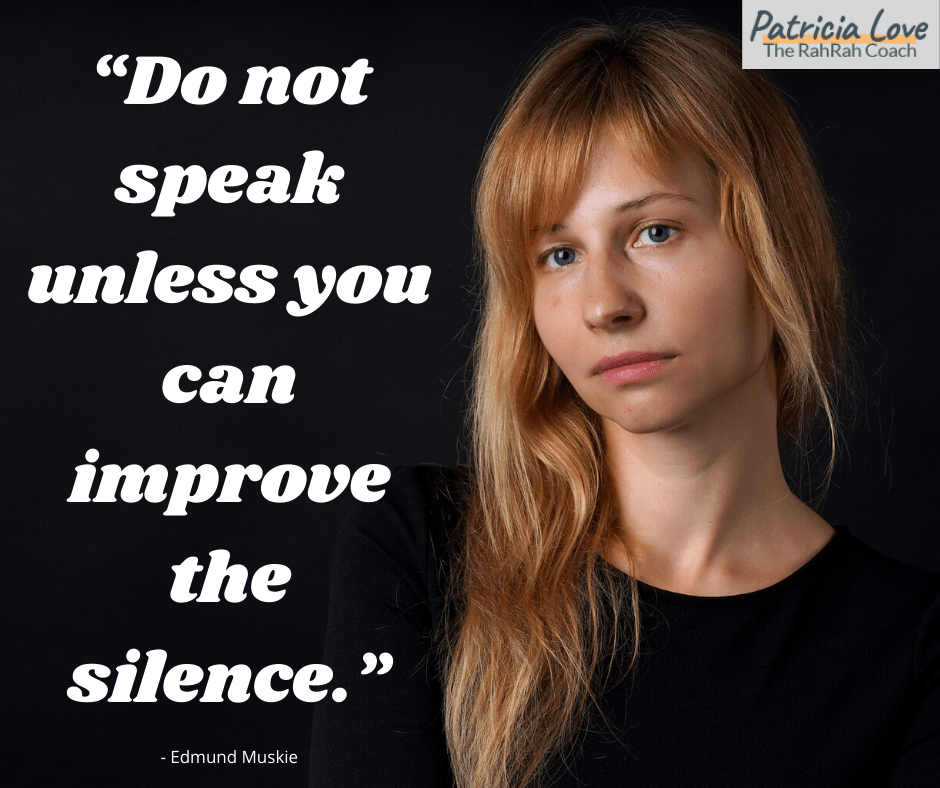Do you find yourself saying sorry for things you shouldn’t be sorry for? Has this habit of constantly apologizing taking a toll on your self-worth? Get ready to learn how to stop apologizing for everything.
How To Stop Apologizing For Everything
Did you know that British people are saying the word ‘sorry’ at least 8 times a day on average? And in case you have been wondering, the statistics are pretty similar to this in the rest of the world as well. As much as our grandmothers keep complaining about each subsequent generation becoming more and more impolite, the stats show that we just love to say sorry.
Why Do We Say Sorry So Much?
Ever since we are little kids, we are taught to say sorry for every little thing that happens. Parents start to ingrain words such as ‘thank you’, ‘please’, ‘excuse me’, and ‘sorry’ in the minds of toddlers before they have even learnt to speak properly. And by the time that kid starts going to school, she is taught the same thing by her teachers. As a result, one in eight grownups say sorry 20 times per day on average.
When you come to think of it, that’s a lot of apologies. But saying sorry is good manners, right?
Isn’t that what we have been taught since our early childhood? So, what’s the problem with apologizing – even if you are doing it a little too much?
Why Is Being Sorry For Everything Such A Problem?
Saying sorry, excessively becomes a problem when you start saying it even when something is not your fault. When you start apologizing for everything all the time, you begin to appear insecure of yourself.
People begin to see you as someone with low self-esteem, who is never sure of herself. Your apologies begin to mean less and less, and others may think of you as a people pleaser. Moreover, you give off an impression of powerlessness that many people think of as a weakness.
All of the above tend to have extremely adverse effects – not only on your personal life but also on your career. Your boss may never consider you an asset if you are always apologizing for your quality of work.
If there is a leadership position, you might be regarded as too timid about handling it. And when you apologize for a genuine mistake, being sorry for it is not going to be enough because that’s what you do all the time either way!
How Can You Stop Yourself From Apologizing Unnecessarily?
Even so, many of us cannot stop ourselves from blurting out the ‘S’ word, even for the most insignificant things. Being raised by strict parents who considered good manners to be above all, I was the same way. That is, until a few years ago when I decided to cut the unnecessary apologies for good. Here are a few tips and tricks on how I managed to do it.
#IChoose to recognize which situations require an apology and which do not
The first thing I needed to do to stop apologizing all the time was to assess myself. Several years back, more than half of my apologies were for things that were not even my fault or were entirely out of my control. I knew this was the place to start. So, I began to reflect on which situation warranted an actual apology and which did not.
So, if I were asked for an opinion and it differed with the opinion of the last person who spoke, the old me would begin the sentence by saying she was sorry. But the truth is, I should not really be sorry about sharing my opinion, and that too which has been asked! Just like this instance, I found many others where I was apologizing without needing to. So I stopped myself from this.
#IChoose to be aware of my triggers and be extra vigilant around them
The next thing I did was make a thorough list of everything that had me saying sorry. Bumping into another person on the street, someone knocking over my coffee at work, or discovering that the elevator was too full to carry another person – you name it. In these situations, I would be apologizing left and right without stopping to take a breath. Though this might not sound like a big deal, in actuality, this was destroying my image among my peers and coworkers.
For this reason, I decided that I would be extra vigilant when these things occurred. Though it was hard to keep track of at first, I soon got the hang of it. By the end of the month, I was saying sorry for these insignificant instances a lot less than where I first started.
#IChoose to ask questions without being sorry about it
Many people begin their questions and requests by saying that they are sorry. I was no different. What I failed to understand then is that apologizing just before you ask for something makes what you have asked for much more significant than it actually is. In this way, the person you have asked feels like they are doing you this great favor that requires a ton of effort, even when they are just doing their job.
So, if you need clarification on what your boss has just requested from you, don’t be sorry about it. By elaborating about the project, they would only be making sure that they get the best results. Hence, in situations like these, #IChoose to omit the apology part of the question.
#IChoose to use more meaningful words to voice my compassion
I have never been good at consoling those who are experiencing a tragedy. I, a few years back, would have nothing else to say than ‘I’m sorry’. Whether a friend’s parent was in the hospital, a roommate’s pet was lost, or a cousin lost her job – past me would always be sorry.
Even then, I wished that there was something else that I could say to those going through grief. Something that would be more meaningful, and might help them in their situation. ‘I’m sorry’ hardly ever cut it. And why was I sorry anyway? It wasn’t me who had put that friend’s parents in the hospital, or caused my cousin to lose their job, or lost my roommate’s pet! So why would I be sorry for it?! Saying sorry just didn’t seem to cut it, but there was a better way I could be compassionate.
And so I tried experimenting with new words to voice my compassion. I sent good wishes to my friend’s parents in the hospital. Then I chose to offer my help to my cousin for writing up a new CV. I made the decision to lend my roommate a hand, and hand out fliers for their missing pet around town.
Doing this, not only did I feel better about the whole deal, but I managed to be of more help than what just an ‘I’m sorry’ would achieve. By switching an apology by words of encouragement, comfort, or an offer to help, I managed to make the entire encounter much more meaningful and compassionate.
#IChoose to turn a negative into a positive
Your great aunt may not agree, but the fact is that saying you are sorry can have a lot of negative connotations. Especially so when you are saying it for the most trivial things. Being apologetic for things that are not your fault makes you sound like you have made a mistake.
And so, many times, you end up suffering the consequences for something when you did nothing wrong! Well, except for apologizing for something that was not your fault.
To make sure I was not getting unwarranted punishments, I decided to give up saying sorry for these things. Instead, I decided to turn into something positive – gratitude!
So now, instead of telling my coworkers, I am sorry that the meeting took so long, I thank them for their patience through it. I say to my students I am grateful for their attention in class, rather than saying I am sorry for the syllabus being so complicated. Similarly, when I am stuck at work, and my plans with my partner get pushed half an hour or so, I thank him for understanding and waiting up on me.
This little trick has worked wonders in my life. It has taken me from someone who is always messing up and having to apologize, to a woman who knows how to appreciate others for what they do.
The Final Word
Even now, I will blurt out an occasional sorry as a stranger bumps into me on the street. Sometimes I will catch myself apologizing to the cashier at the supermarket for having too many items in my cart. However, ever since I began following the above tips and tricks, I have noticed that I have cut down these instances of needless apologies significantly.
With this change, I have come to notice several other changes in myself too. I feel much more confident, capable, valued, and respected than I was a couple of years ago – both, in my workplace and my personal relationships. Breaking this little habit has opened up avenues for me that I never expected to follow.
I would like to thank Blogsfeed for picking me as one of the top 100 blogs and websites in 2020, every woman must follow!






